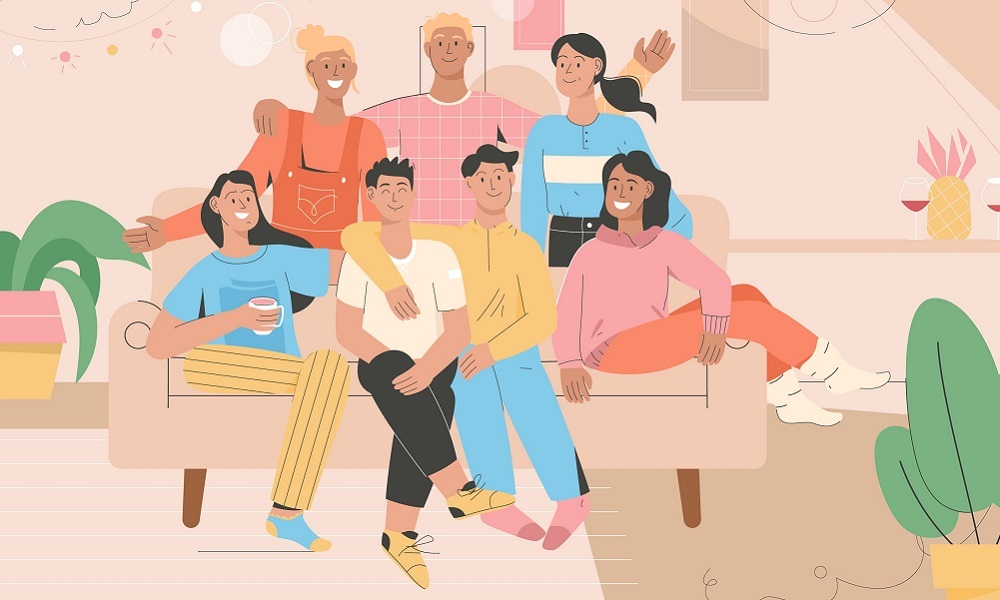As a teacher or school leader it can be challenging to prioritise your personal life when your work demands so much of your time. As Associate Professor Roger Patulny shares, there are some practical strategies you can employ to maintain friendships throughout the working year, and even make some new friendships.
After many of us have lived through lockdowns and additional periods of restrictions on social gatherings, it’s safe to say we can all now appreciate how it feels to be lonely and isolated. And, after having the opportunity these school holidays to reconnect with your networks in person, perhaps you’ve been reminded of how important your friendships are.
Roger Patulny is an Associate Professor of Sociology at the University of Wollongong and he has researched social networks, friendship, loneliness, and emotions throughout his career. He says it’s important for our wellbeing and our health to have good connections with others.
‘So, 20-odd years ago people were studying what’s called social capital (which is something that people are still interested in now), but even back in those days they were finding in these big statistical studies that people who had these high levels of social capital – which means connections with others… tended to have better health outcomes and better subjective wellbeing outcomes, like high levels of happiness and satisfaction,’ Patulny tells Wellbeing by Teacher.
‘And studies specifically on loneliness have identified the impacts of loneliness… If you’re more chronically lonely it’s linked to higher levels of depression, higher levels of suicidal ideation, higher levels of cardiovascular disease, and a range of other health concerns.’
Having different types of friends is important
Patulny’s recent research looked at the impact lockdowns has had on friendship circles. He and his colleague Marlee Bower surveyed 2000 adults in Australia and found that they had begun prioritising their closest friends and were severing ties with their more distant friends.
‘So they wanted to focus on the friends that mattered to them. And that was a noticeable aspect of the pandemic,’ he shares. ‘But we also found some more positive aspects to the pandemic. For example, hand-in-hand with the pandemic came the rise of video conferencing… and that enabled people to connect with more distant (geographically distant people) than they would otherwise have been able to … so the pandemic had this effect of shrinking networks, but it also opened up some other opportunities.’
Patulny explains there are two different types of friends – close friends and distant friends – and both benefit us differently. A close friend can be characterised as a friend that offers support similar to a partner or spouse, such as emotional support, favours, and meaningful conversation. Distant friends, on the other hand, are mainly there for fun. They also provide conversation, but it’s typically more general in nature and they’re particularly useful for offering advice.
‘Different types of friends have different effects – different types of help, different forms of support – and what you kind of ideally want is to have at least a few really good close ones for your sort of emotional and supportive needs, but then also a broader network for the purposes of fun, advice, information and also community engagement as well.
‘It’s still good to have at least one or two of those [close friends] around to take some of the pressure off your partner.’
Strategies for maintaining existing friendships
As a teacher or school leader it can be challenging to prioritise your personal life when your work demands so much of your time.
Patulny shares two practical strategies you can employ to maintain the close friendships you have while you’re balancing work pressures at the same time. ‘So, the first one is try to make a regular effort to contact old friends. So, a lot of the time people let that stuff drift, but even scheduling phone calls to just have a chat once in a while [is important].’
Another key strategy is to incorporate your close friends into your weekly routine. For example, if you like to go for walks on the weekend, bring one or two friends along with you. Alternatively, you could pick up a new hobby with a friend.
Making new friends as an adult
For many adults, forming new friendships is a daunting prospect. This is typically because as we get older, we are under more time pressure, we take fewer risks, become more tired, and perhaps favour a more sedentary lifestyle, Patulny explains.
If you are looking to connect with people in your community to form new friendships, he says a great strategy is look at what groups you could join. You can search for community groups online that are based on hobbies, interests and activities.
‘Importantly though, if you’re going to join a group, make sure it reflects your true interests. If you join a group for something you’re vaguely interested in, you’ll probably end up going “that was too hard or a waste of time”. So, take the time to find something that you’re genuinely interested in. And if you can’t find it, create something.’
Are you an educator working in a school setting? If so, are you interested in submitting an article for publication on Wellbeing by Teacher? We’d love to hear about how you care for your own wellbeing. In the past 12 months, we’ve shared articles from educators about making room for ‘me’ time, riding to work, and building a veggie garden. Reach out to the team by emailing teacherwellbeing@acer.org with your story idea. We’ve also put together a handy guide to help you get started.


